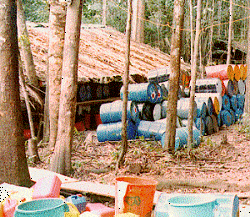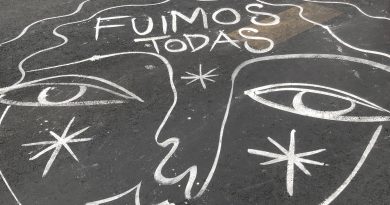FOCUS on Narco-States: Guinea-Bissau
Jasmine DeLeon
Staff Writer
Guinea-Bissau, a small African country that ranks as one of the poorest in the world, has been infiltrated at every level ‒political, economic, social‒ by the illegal drug trade. The country serves as a midpoint in cocaine trafficking routes from Latin America to Europe. Over a decade ago, it was labeled Africa’s “first narco-state.” Last year, Ruth Monteiro, Guinea-Bissau’s Minister of Justice and Human Rights, stated that the country is still a “paradise for drug traffickers,” reports BBC.
According to a United Nations Office on Drugs and Crime (UNODC) report, after 2007, Guinea-Bissau became a key transshipment hub for cocaine. GQ reports that one-way drug trafficking has gone undetected is through “humanitarian caravans”. People posing as humanitarian aid workers from Eastern Europe pick up drugs in goods like clothes and medicines, which they bring back to Europe.
Since the beginning of the country’s history, Guinea-Bissau has faced political instability. It was a Portuguese colony from the 19th century until gaining independence in 1974. Six years later, the country’s first president was removed by a military coup. Only one president has completed their full term since Guinea-Bissau gained independence in 1973. João Bernardo “Nino” Vieira, a three-time president, was believed to be involved in the illegal drug trade with Colombia, reports Business Insider. Since independence, there have been over 9 coups that weakened the government and created an environment where illegal drug trafficking has flourished.
Poverty both enables and exacerbates Guinea-Bissau’s existing drug problem. According to a UNODC report, Guinea-Bissau is “one of the smallest and poorest countries in a generally poor region.” In 2008, The Guardian reported that the “street value of the drugs trafficked [in Guinea-Bissau] far exceeds gross national product.” In the 2010 United Nations Development Report, Guinea-Bissau ranked 164 out of 168 countries. The country’s large-scale poverty is a significant vulnerability that prevents it from having resources to deal with the drug crisis.
This sentiment was articulated in March 2019 when former president José Mário Vaz asked the international community to help Guinea-Bissau deal with drug trafficking. He said Guinea-Bissau does not “have aeroplanes, we don’t have boats, we lack the radars that would give us control over our…economic zone,” reports Al Jazeera.
Another roadblock to political stability in the country is the lack of reliable news sources. According to a 2019 State Department report on human rights practices in Guinea-Bissau, the government had “not take[n] steps to preserve the safety and independence of the media or to prosecute individuals who threatened journalists”. In March, an independent radio station was attacked by local military forces, according to a policy brief. This has made it more difficult for local journalists to report on what is happening on the ground and caused many to self-censor to avoid threats and pressure.
Guinea-Bissau’s weak political leadership and government corruption are closely related to the illegal drug trade. For example, in 2012, the military organized a coup and took power “to achieve control in the rapidly growing lucrative drug trade”, according to a 2020 report by the Global Initiative Against Transnational Organized Crime.
The current political climate suggests greater stability will not be achieved anytime soon. During the 2020 Guinea-Bissau presidential election between Umaro Cissoko Embalo and Domingos Simoes Pereira, military supporters part of both parties occupied government buildings to intimidate officials making their final decisions. After Embalo won the election, Rosine Sori-Coulibaly, a prominent UN official, stated to the Security Council that “given the deep mistrust between the two political camps, divisions in the Executive branch, and shifting political alliances in Parliament, the swearing-in of the future President will unlikely bring about stability,” according to UN News.
Recent drug busts also suggest that the country is far from resolving its drug problem. Generally, worldwide, there has been an increase in cocaine seizures, reports Insider. In September 2019, Guinea-Bissau set a record for the largest drug bust in the country’s history that uncovered 1.8 tons of cocaine, reports BBC. This came six months after another record-setting bust in March 2019. Both drug busts, however, show some progress in tackling the country’s cocaine issue.
An international team consisting of officers from Brazil’s Federal Police, Colombia’s National Police, and Interpol sent a team to Guinea-Bissau following the drug bust in September 2019, according to the Interpol website. Both events gained international attention and led to concrete action that may help the country rebuild stronger political, economic, and social institutions in the future.


